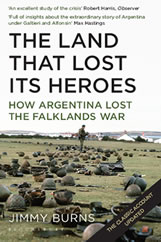With the Taliban taking power in Kabul, I share this memory of a visit to the presidential palace with other British journalists and Tony Blair in November 2006. We were visiting the region on the fifth anniversary of the liberation of Kabul from Taliban control.
The visit had begun with an abrupt descent to Kabul airport in a Hercules transport to diminish the risk of being hit by hostile ground to air fire. On landing, the rear access to the military aircraft opened like the mouth of a whale and I found myself hurried into a Black Hawk helicopter by heavily armed American soldiers. As we flew off, I sat next to one young soldier who shielded me with his body , while looking out from a half open door, with his machine gun pointing below -like a scene out of a Vietnam movie.
The short flight took us away from the main military hub of the airport to where an armoured 4×4 manned by a private security team of ex special services took us break neck speed along the so-called sniper avenue to the presidential palace.
What I saw of Kabul along the way I could only describe as a mixture of medieval poverty and an awesome mainly anglo-american military operation – I felt in the presence of might and right.
Two days earlier I had flown in a specially charted British airways flight from London with Tony Blair, his staff, and a group of journalists to Pakistan, arriving late afternoon in Islamabad.
Along with my journalist colleagues, I was booked into the Marriott Hotel. I remember having to meet up with a local friend who seemed to think the hotel was filed with members of the Pakistani intelligence service, whose true loyalties were hard to gauge, and that we should be discreet.
That evening I found myself descending some narrow steps to the lonely space in the hotel called the ‘Dive Bar’ that served alcohol. I found some of my colleagues had beaten me to it and, half drunk, were its sole occupants. They were being served rounds of beer by staff with a look of scarcely concealed hate for how we behaved and what we represented. (Less than two years later, on the 20th of September 2008, the same hotel suffered a major terrorist attack which killed over 50 people, injured more than 250,)
The next day we travelled to Lahore where Pakistani President Pervez Musharraf told Blair that Nato could not rely solely on military might but also had to make political settlements and pump billions into the Afghans’ neglected economy.
Blair promised double education aid to counter extremist teaching, part of a twin track strategy of security and reconstruction, while warning that the long fight against terrorism would take a generation to win. Visiting the second largest mosque in the world, the Saudi-funded Faisel mosque he said he was sure there would not be a clash of civilisations, but instead an alliance of civilisations to fight terrorism.
The three day trip had as being transported between photo-ops and press conferences under security escort at great speed on the ground through two major Pakistani cities and by air across the border to Kabul via a short stopover in the British military task force base at Camp Bastion, in the southern province of Helmand.
Blair spent about an hour at the base’s airport meeting some of the 2,200 mainly UK troops stationed there. In a five-minute speech to the troops, Mr Blair said: “It is here in this extraordinary piece of desert that the future of the 21st century is going to be decided.”
The then British prime minister said he recognised the toughness of the challenge Nato troops were facing but insisted that this was a war that the alliance could not afford to lose, “The only way we are going to beat the Taliban is having the courage and the will to make sure that however much they fight us, we stand up and defeat them,” he said.
It was a trip full of promises of a better future despite the trauma of 9/11, the continuing terror attacks, and the deep turmoil in the region created by the war on terrorism.
In Kabul, I struggled to file a story in the sprawling gardens of the presidential palace via a satellite phone after Blair press conference with President Hamid Karzai and before we were rushed off again at the start of our return to London.
Blair was stepping up pressure on the UK’s Nato allies to send more troops and bolster support for Afghanistan ahead of a key summit in Riga, Latvia, at the end of that month. He compared the situation then facing the alliance in Afghanistan with the hesitancy shown by some Nato countries at the beginning of the Balkan crisis in the 1990s.
Failure to act in co-ordinated fashion in the Balkans he said, had led to “thousands of dead”. On the challenge facing the Nato international security and assistance force (Isaf) in Afghanistan, Mr Blair added: “Now is the right time to bring into sharp focus the need to stay with Afghanistan and help it progress and develop….We have to regain the vision that brought us here in the first place and which should keep us here until the job is done.”
It was Mr Blair’s first visit to Afghanistan since visiting Bagram airport in 2002, an absence which served as a reminder of the extent to which he and US President George W. Bush’s diplomatic and military focus has been diverted by the crisis in Iraq.

